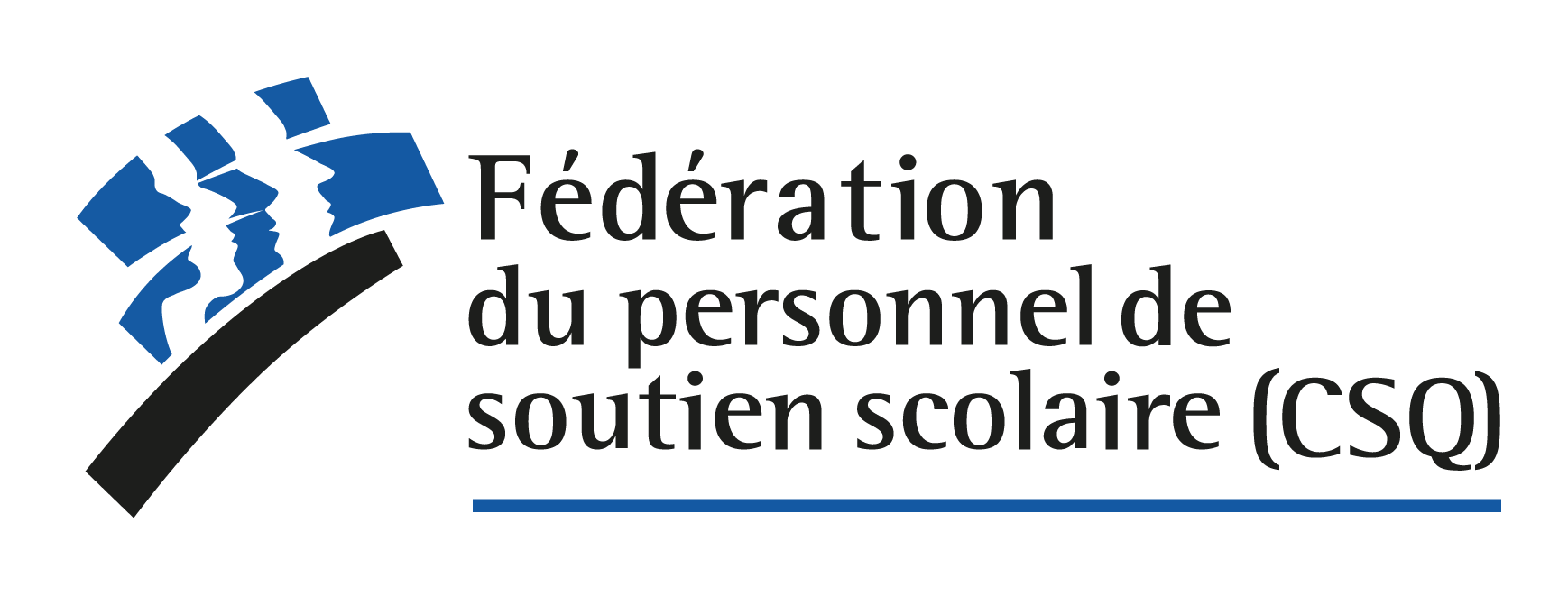Education Hiring Freeze – A Year of Service on Ice



30 October 2025
Dozens of members of the school and college sector professional and support staff federations affiliated with the Centrale des syndicats du Québec (CSQ) gathered this morning in front of the National Assembly to mark the grim anniversary of the education hiring freeze. The federations used the event to reveal the results of a consultation conducted with staff in educational institutions.
While there have been some concessions, the consultation highlights the considerable impacts of the hiring freeze decreed on November 1, 2024, as well as the budget cuts announced at the beginning of the summer. It should be noted from the outset that, despite the government’s attempts to downplay the consequences of its decisions, 95% of the 1,486 people who participated in the consultation reported having witnessed the consequences firsthand.
“The consultation results clearly demonstrate that the CAQ government’s harmful decisions have very tangible consequences but do nothing to reduce bureaucracy. On the contrary, we are facing severe capitulation. It’s a real obstacle course aimed at cutting spending regardless of consequences rather than allowing us to address the pressing needs in these sectors. Furthermore, the hiring freeze is placing enormous pressure on existing staff, who are being forced to take on additional tasks, often outside their area of expertise. This situation is untenable and jeopardizes the quality of services,” summarized Éric Pronovost, President of the Fédération du personnel de soutien scolaire (FPSS-CSQ), Carolane Desmarais, President of the Fédération du personnel professionnel de l’éducation du Québec (FPPE-CSQ), Valérie Fontaine, President of the Fédération du personnel de soutien de l’enseignement supérieur (FPSES-CSQ), and Éric Cyr, President of the Fédération du personnel professionnel de l’éducation du Québec (FPPE-CSQ).
Students with Special Needs Severely Affected
The quality of services offered to students, particularly those with special needs, is directly affected by staff shortages. Within both educational sectors, approximately three out of five respondents have observed a decrease in support for students with special needs, or a decline in the quality of that support.
In schools and centers, special education technicians and other support staff are understaffed, leading them to neglect certain tasks or work beyond normal hours.
According to FPPC-CSQ President Éric Cyr, the significant increase in the number of students with special needs in our schools has also been felt in CEGEPs for several years. “Once we manage to identify and enroll them, we must then give them every opportunity to reach their full potential as CEGEP students. We must offer them the services they are entitled to expect. We are seeing that they have borne the brunt of the decisions made last year. Seeing so many respondents report that support for these young people has suffered, particularly through the closure of centers and support services, is frankly worrying,” he laments.
Widespread Overwork
Respondents to the federation-led consultation said the results of increased work overloads manifest in various ways: 60% had to provide additional support to a colleague, 56% had to take on at least part of the work usually performed by colleagues, 50% shortened or skipped their breaks, 48% had to increase response wait times, 38% performed additional work outside of regular hours, and 26% had to cancel, suspend, or cut services (teaching, research, or cultural activities).
69% of respondents working in colleges reported widespread work overloads while being unable to claim overtime pay.
“Government interference in hiring is resulting in disengagement and demotivation among support staff. Many respondents reported a decrease in their sense of belonging to their employer. In fact, 94% expressed concern about attracting and retaining staff. The situation is very worrying,” commented FPSES-CSQ President Valérie Fontaine.
The findings are just as alarming for support staff working in schools: 75% of those surveyed have seen an increase in their workload since the hiring freeze. 73% of respondents have observed a decline in the quality of services for students, and 68% for students with special needs. Nearly 60% must support colleagues or cover vacant positions, while 51% are forced to shorten or eliminate their breaks. 65% feel they cannot fully perform their jobs.
Mental Health Issues
The majority (60%) of professionals and support staff in the education system believe that cuts and hiring freezes are affecting their mental health.
“Behind these statistics are exhausted, demotivated people worried about their mental health. 57% of our members report that the hiring freeze is affecting their psychological well-being, and over 92% report increased stress. This isn’t just a matter of numbers; it’s a crisis,” insists FPSS-CSQ President Éric Pronovost.
“The hiring freeze isn’t just an administrative constraint; it has profound human consequences. It’s plunging a significant portion of our administrative staff into alarming psychological distress. When 93% of them report experiencing increased stress and demotivation, and when work environments deteriorate, it’s no longer a management issue, it’s a workplace crisis. And make no mistake: administrative staff directly support student services. To claim otherwise is to deny their essential role in the smooth operation of our schools,” states FPPE-CSQ President Carolane Desmarais.
Completely Cancel the Cuts and Hiring Freeze
“It is students and the student population in general who are paying the price for the government’s decisions. The lack of resources is jeopardizing their success and well-being. We urgently need to recognize the importance of administrative and support staff and to end this hiring freeze that is weakening the education system. There are so many obstacles to hiring and funding that it would take David Copperfield to navigate them. This is all the more true given that the historic $151 million in cuts affecting the college network have remained entirely in place so far. The consequences on the ground are quite simply dramatic,” conclude the presidents of the four federations affiliated with the CSQ.
